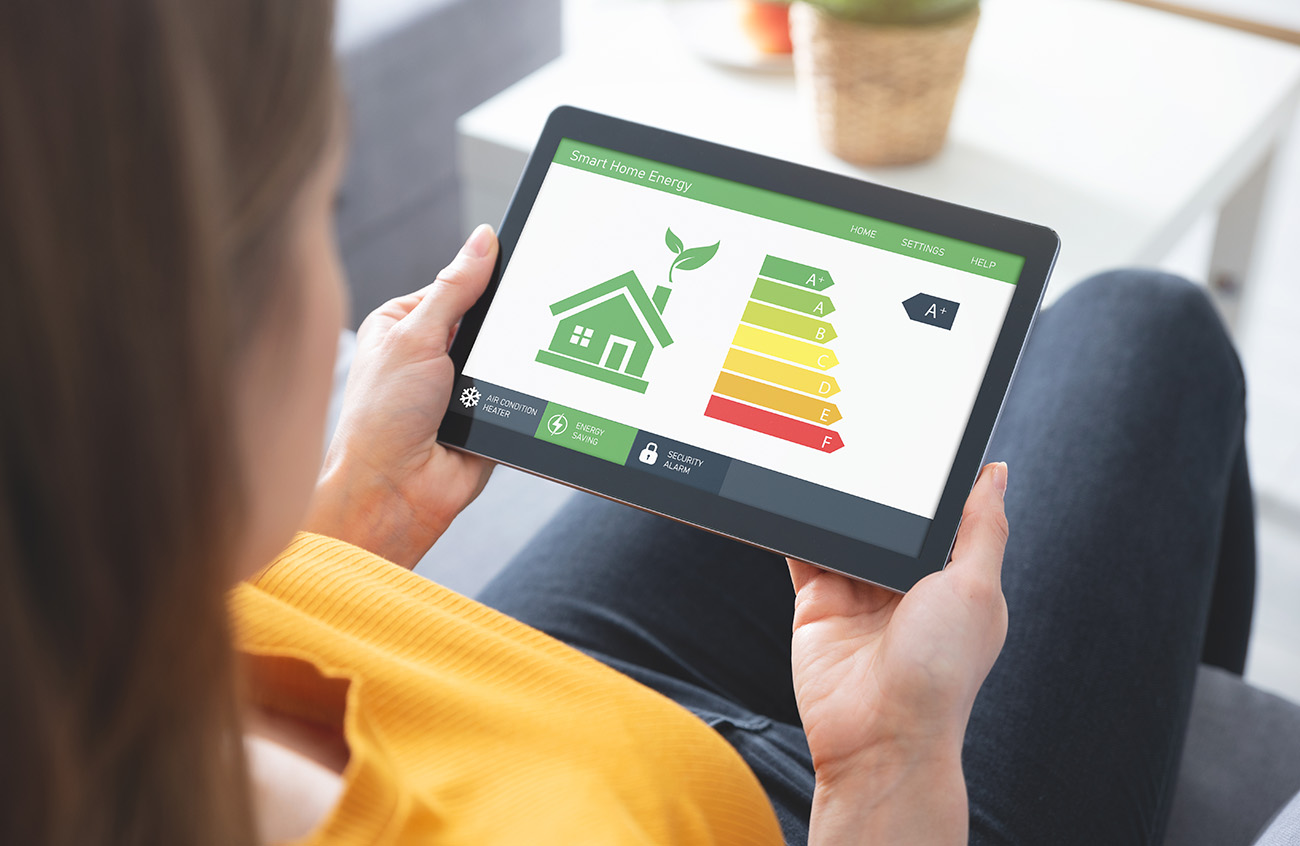The recently released government consultation on the Home Energy Model aims to revolutionise the calculation methodology for energy performance. With various key changes to the methodology and ecosystem proposed, there is also speculation as to what will happen to the Energy Performance Certificate (EPC). Will the Home Energy Model change EPCs?
What are Energy Performance Certificates?
An Energy Performance Certificate (EPC) is a legally valid document that provides an energy efficiency rating (displayed on an A-G scale) in relation to a property’s running costs.
This rating will take into account the potential energy performance of the property itself (the fabric) and its services (heating, lighting, hot water etc).
In addition to this, the EPC document will show:
- a breakdown of a property’s energy performance,
- its environmental impact,
- recommendations for improvements,
- estimated energy use alongside potential savings.
What is the Existing Methodology (SAP and RdSAP)?
The Standard Assessment Procedure (SAP) is the methodology used by the UK government to estimate the energy performance of homes. The methodology has 2 main uses:
- to demonstrate compliance of new homes with Part L of the Building Regulations,
- to generate EPCs for all homes.
SAP was initially developed by the Building Research Establishment (BRE) and was first cited as the means of assessing the energy performance of dwellings in the 1994 Building Regulations. Since then, SAP has gone through various iterations, with the current version, SAP 10.2, released in June 2022.
Reduced data SAP (RdSAP) was introduced in 2005 as a simpler and lower cost method for assessing existing dwellings. An RdSAP assessment will use a set of assumptions about the dwelling, thereby reducing the volume of data an energy assessor must collect.
The Home Energy Model
In December 2023, the UK Government released a consultation on the Home Energy Model; Home Energy Model: Replacement for the Standard Assessment Procedure (SAP). This consultation presents the government’s new calculation methodology, which will replace the Standard Assessment Procedure (SAP) and is ‘designed to be ready for net zero’.
The Home Energy Model project is focused on Building Regulations compliance and Energy Performance Certificates as the two main regulatory use cases for the model.
Will the Home Energy Model Change the Energy Performance Certificate?
The Home Energy Model project will not change the Energy Performance Certificate itself. However, the government is working on proposals to improve aspects and areas relating to EPCs, such as the performance metrics that they display.
For the Home Energy Model, the government is developing an EPC Wrapper; a separate software package that will wrap around the core engine. The wrapper will specify the inputs to the core engine that are needed for an EPC assessment, as well as process the outputs of the core engine into the form needed for the certificate.
For existing dwellings, the wrapper will take on the same function that Reduced data SAP (RdSAP) has performed in the past, such as specifying what assumptions are to be used if detailed design information is unavailable.
Development of the EPC wrapper for the model is due to start in the next phase of development.
Does the Home Energy Model Cover EPC Reform?
It’s important to note that the Home Energy Model consultation does not cover EPC reform and does not include a specific Home Energy Model methodology for producing EPCs.
Outside of the Home Energy Model project, we are still waiting in England for the Consultation on the ‘EPC action plan’, which covers the next steps to enhance energy efficiency and the quality of EPCs. The consultation on the EPC Reform, which was previously scheduled for release before the summer recess, has now been paused as a result of the general election.
In Scotland, the EPC reform consultation, which set out proposals to reform domestic and non-domestic EPCs, closed for response in October 2023, and is currently being reviewed by government alongside responses to the related consultation on proposals for a Heat in Buildings Bill, which closed in March 2024.
What Will Happen To Current EPCs?
There is currently no clarification on what will happen to current EPCs once the Home Energy Model is live. The Home Energy Model is still being consulted on by the government and responses to the consultation are now being reviewed. We expect more information and clarification from government in the next stages of development.
The original post can be found on the Elmhurst Energy website

